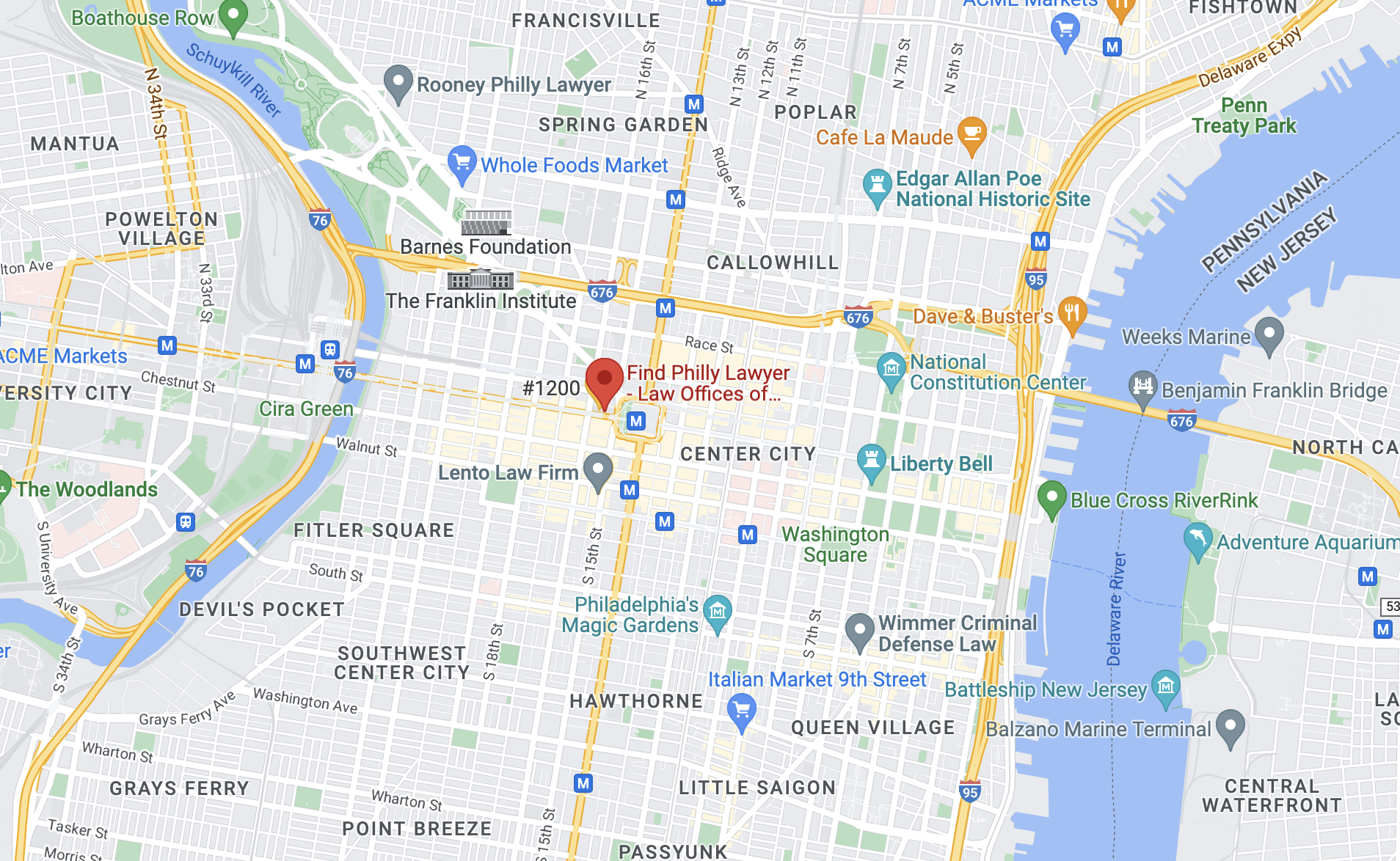A conviction in criminal court does not mean your fight for justice is over. Courts are not perfect, and judges make mistakes. We can help you file an appeal to correct mistakes and possibly get a second chance.
After a conviction, the appeals process begins quickly. Defendants have 30 days from sentencing to file an appeal. When we file the appeal, your case may be reviewed by a higher appellate court. Remember, this is not a new trial where we argue over evidence or guilt. An appellate hearing involves a thorough review of your trial record to check for legal errors. If the court finds errors that unjustly affect the outcome, steps may be taken to fix the mistakes. In some cases, defendants get a new trial and a second chance to defend themselves. All kinds of legal errors may be grounds for an appeal. An attorney can go over your case with you to determine what grounds for appeal you might have.
If you or someone you love has been convicted of a crime, call our Philadelphia criminal defense lawyers at The Liberty Law Team at (215) 826-3314 for a free case review.
How to Begin a Criminal Appeal in Philadelphia
Starting a criminal appeal usually happens fast. According to 210 Pa. Code Rule § 903(a), an appeal must be filed within 30 days of the entry of the order from which we are appealing. This is usually the date that a convicted defendant is sentenced. While many attorneys begin working on the appeal almost immediately after a conviction, some do not. If your attorney never mentioned filing an appeal, or you want a new lawyer to help you, you need to move quickly, as the clock is ticking.
While we must submit a notice of the appeal within 30 days, the actual substance of our appellate case does not have to be submitted right away. After our Philadelphia criminal appeals attorneys submit a notice of the appeal, we must begin working on our appellate brief. The brief should include a Statement of Errors Complained of on Appeal. This is essentially an explanation of what mistakes we believe were made and how we want the problems resolved.
It is important that we explain the legal errors made during your trial in thorough and complete detail. The record of your trial will also be sent to the appellate court for review. Since the court will only look for errors that we bring up in our State of Errors, it is crucial that we include any and all errors we believe had a negative impact on you and your trial.
Your Deadline to File an Appeal After a Criminal Conviction in Philadelphia
While all criminal defendants usually have a right to file a direct appeal after a criminal conviction, the rules surrounding the appeals process are very strict. First, you must file your appeal no later than 30 days after you are sentenced, according to 210 Pa. Code Rule § 903(a).
Exactly when this 30-day period begins counting down depends on whether you file a post-sentence motion after you are sentenced. Defendants typically have 10 days to file a post-sentence motion. This motion essentially asks the judge who sentences you to reexamine certain elements of your case and reconsider the sentence. If you file a post-sentence motion, your 30-day deadline begins the day your motion is denied by the judge. If you choose not to file a post-sentence motion, your 30-day deadline begins on the day of your sentencing.
If you miss the deadline, the appellate court might deny your appeal, and you might not get a chance to have your appellate claims heard. If you believe your appeal was late due to circumstances beyond your control, talk to an attorney. There might be other appellate options, or the court might be willing to hear your appeal even though it is late.
What Happens at a Criminal Appeal Hearing in Philadelphia?
The criminal appeal hearing is different than a trial. At a typical trial, attorneys introduce evidence and make arguments regarding the defendant’s alleged guilt. At an appellate hearing, matters of evidence and guilt are not what is important. Instead, the appellate court examined records of your trial for signs of reversible error.
People sometimes mistakenly think that an appellate hearing is another chance to show the court evidence of their innocence. They might be disappointed when they learn that most appellate hearings involve no new evidence. However, if the point of your appeal is that new evidence would have changed the outcome of the trial, this might be a somewhat different story.
Instead, the court will review the lower court’s trial records for reversible legal errors. Legal errors are mistakes made by the court that somehow negatively impact your outcome. Most appellate claims must be preserved during the trial to be appealed later. An issue may be preserved when we raise an objection. This is why objections in the courtroom are very important and happen often.
The key here is that errors found by the court must be reversible for the court to grant relief. If the error was insignificant or the verdict could stand in spite of the error, the appellate court might not reverse the lower court’s ruling. What constitutes a reversible error may be very subjective in some ways but guided by rigid rules and procedures in other ways. An attorney can help you effectively argue to the court why the errors made during your trial are reversible and that you should be granted a new trial.
Contact Our Philadelphia Criminal Appeals Lawyers
If you or someone you love has been convicted of a crime, call our Pennsylvania criminal appeals lawyers at The Liberty Law Team at (215) 826-3314 for a free case review.




 Liberty Law Team
Liberty Law Team  (215) 826-3314
(215) 826-3314 lonny@libertylawteam.com
lonny@libertylawteam.com





